Current Fellows
The Greater Good Science Center offers annual fellowships to UC Berkeley undergraduate and graduate students whose research relates to the Center’s mission. Our fellowship program seeks scholars from across a broad spectrum of academic disciplines, with a particular focus on the social-behavioral sciences.
Learn more below about the exceptional young scholars who comprise our current and past crops of fellows.
Current Graduate Fellows
-
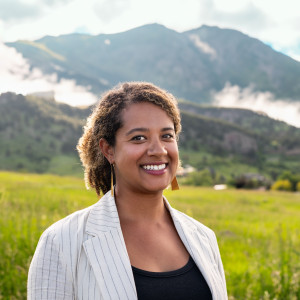
Larissa Benjamin (Libby Fee Research Fellow)
Larissa Benjamin is a Doctor of Public Health (DrPH) candidate at UC Berkeley in the School of Public Health. She earned a BS from the University of Michigan and an MPH from UC Berkeley and previously worked on equity-centered research at Berkeley Public Health. Her research examines the structural and historical factors that contribute to cardiovascular disease risk in rural Southeastern communities, employing rigorous quantitative and qualitative research methods. As a GGSC research fellow, she will examine how rural community leaders in Alabama understand and respond to historical disinvestment through community-led efforts and local knowledge to support well-being in their neighborhoods.
-
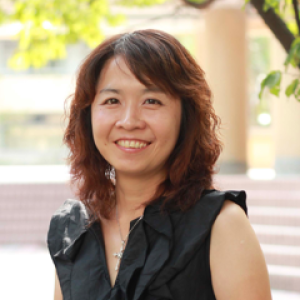
Chun-Chi (Sarah) Yang
Originally from Taiwan, Chun-Chi is a second-year Ph.D. student in the School Psychology program at the Berkeley School of Education. Before coming to Berkeley, she worked as a high school English teacher for 20 years at top public schools, where she developed a deep commitment to supporting adolescent mental health through her classroom experience. As a GGSC fellow, she will investigate how stress and digital media use interact to shape the social well-being of Chinese American adolescents. Her goal is to inform culturally responsive, school-based interventions that promote both mental and social well-being among immigrant youth.
-

Young Joo Jun
Young Joo Jun is a doctoral student in Behavioral Marketing at the Haas School of Business, UC Berkeley. She holds a B.S. in Business and Technology Management from KAIST and an M.A. in Social Psychology from Seoul National University in South Korea. Young Joo’s research broadly focuses on how people form impressions of others based on their decision-making styles and behaviors. As a GGSC Fellow, she will investigate how people perceive others’ resource constraints—particularly time versus money—and how these relate to expectations of generosity and evaluations of others in prosocial contexts.
-
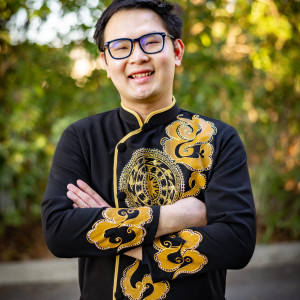
Phuc (Nick) Nguyen
Nick Nguyen is a fourth-year doctoral student in the Clinical Science program at UC Berkeley. After obtaining his bachelor’s degree in Psychology from Cal, Nick spent the following six years working as a research specialist at WestCoast Children’s Clinic, leveraging data to support and advocate for communities that have been historically underrepresented, underserved, and vulnerable. Nick’s current research focuses on understanding social drivers of health and promoting health equity. As a GGSC fellow, Nick aims to evaluate the utility of infographics as a method to disseminate knowledge and increase ADHD literacy, reduce ADHD-related stigmatization, and promote compassion and well-being.
-
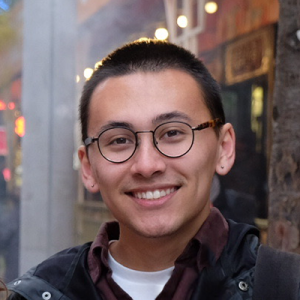
Evan Orticio
Evan Orticio is a PhD candidate in developmental psychology at UC Berkeley. Prior to Berkeley, he earned bachelor’s degrees in psychology and linguistics at Swarthmore College. His research explores how we form beliefs and learn effectively from other people across the lifespan. As a GGSC fellow, he will investigate how adolescents’ beliefs are swayed by social influence in digital contexts like social media. Findings will inform approaches for fostering digital literacy and resilience to misinformation online.
-
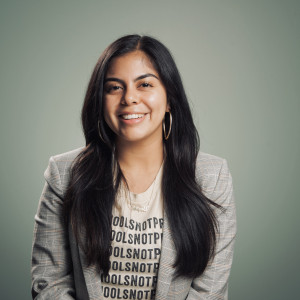
Irene Franco Rubio
Irene Franco Rubio is a doctoral student in the Department of Ethnic Studies at UC Berkeley, where she is pursuing Designated Emphasis in Gender, Women, and Sexuality Studies and New Media. Born and raised in Phoenix, Arizona, Irene is a first-generation scholar-activist whose work explores multiracial coalition-building, grassroots resistance, and social movement histories in the U.S. Southwest. Her academic and community-based research is grounded in participatory methods and shaped by her ongoing organizing work. As a GGSC fellow, Irene will explore how cross-racial solidarity contributes to social well-being, particularly in the context of grassroots community organizing efforts responding to racialized state-sanctioned violence.
-
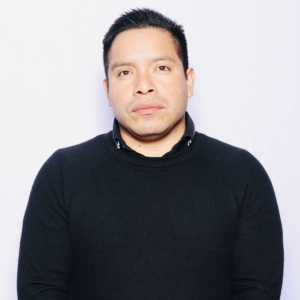
Henry Sales Hernandez
Henry Leonel Sales Hernández is an Indigenous Maya Mam educator, researcher, and doctoral student in UC Berkeley’s School of Education. Born in San Juan Atitán, Guatemala and currently lives in Oakland, he works at the intersection of language revitalization, early childhood education, and community-based research centering Mam youth and transnational families.
Henry Sales’ GGSC fellowship project explores how early literacy and storytelling practices among Mam toddlers, children, and youth in Oakland CA foster emotional connection, cultural affirmation, and language development. Through classroom observation and interviews with caregivers and educators, the project highlights how toddlers, children, and youth form meaningful relationships with books, stories, and each other.
Current Undergraduate Fellows
-
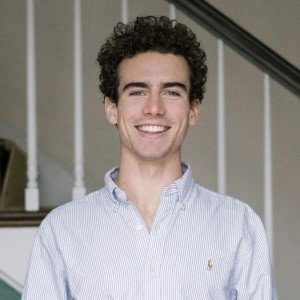
Gregory Thomas La Londe
Greg La Londe V is a senior undergraduate student at Berkeley studying Philosophy and Cognitive Science. Greg is a research assistant under the guidance of Lou Derringer and Dacher Keltner in the Berkeley Social Interactions Lab. Greg’s research is broadly focused on interactions between memory, storytelling, and AI. His research is attempting to measure how much of emotional and prosocial benefits of journaling can be attributed to the preservation and subsequent interactions with one’s life story. Greg hopes that this research will help inform how we may augment autobiographical story telling mediums in order to enhance these measured benefits.
-
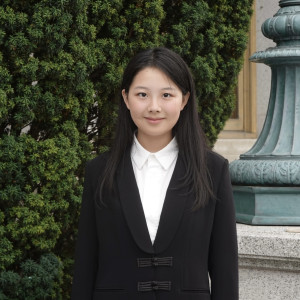
Zhuoya Wang
Zhuoya Wang is a junior undergraduate at UC Berkeley majoring in Psychology and Statistics. She is a research assistant in the Haas Intersectionality, Group Hierarchy, Emotions Research (HIGHER) Lab. She is particularly interested in prosocial emotions, such as empathy, and the transformative power of art. Outside of research, she is part of the Associated Students of the University of California and facilitates a baking DeCal. Currently, as a GGSC fellow, Zhuoya will study how awe reduces social categorization. By helping people feel part of a greater social collective, awe blurs the boundary between “they” and “we” and will close the gap between empathy for ingroup and outgroup members.
Past Fellows
